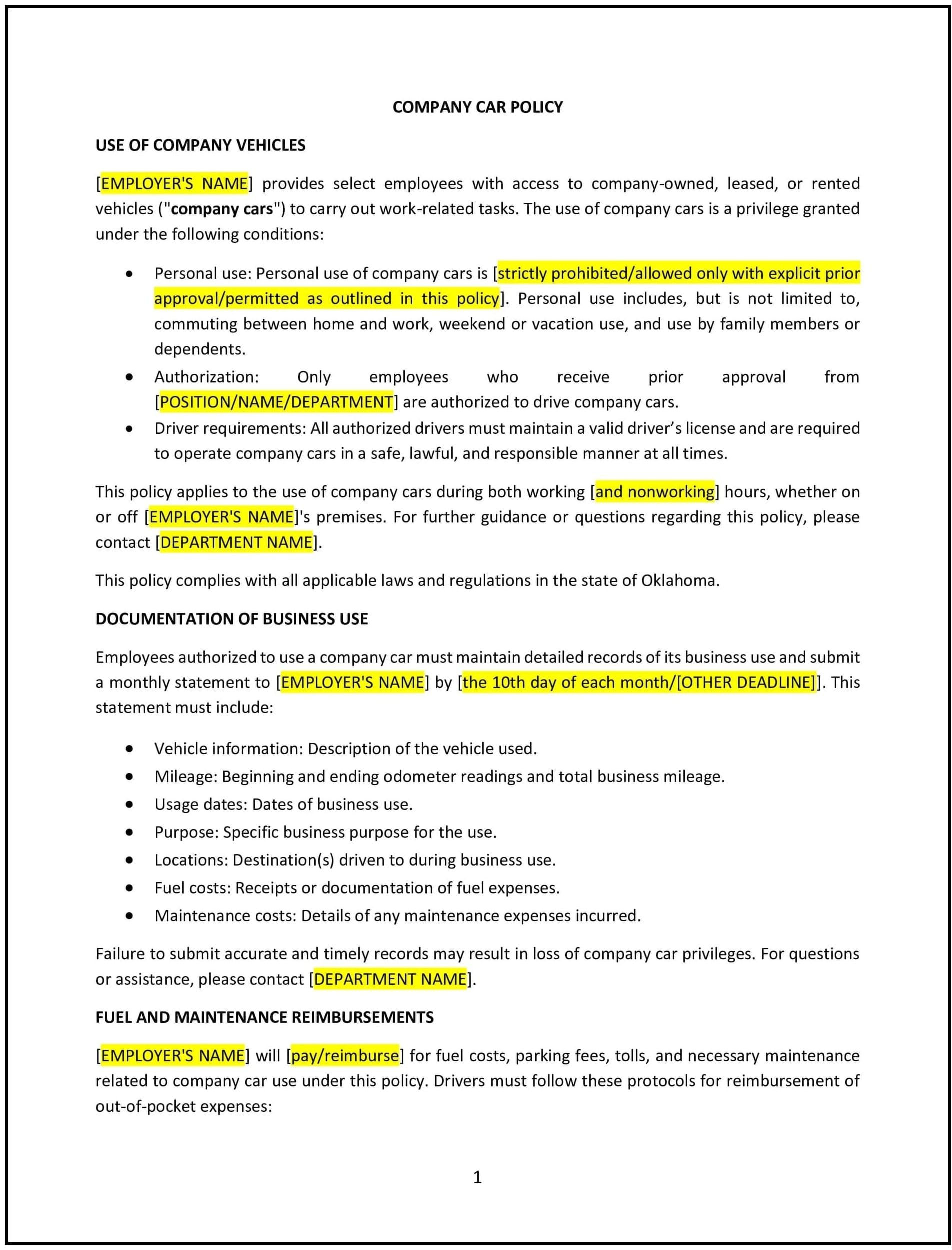Got contracts to review? While you're here for policies, let Cobrief make contract review effortless—start your free review now.

Customize this template for free
Company car policy (Oklahoma)
This company car policy is designed to help Oklahoma businesses establish clear guidelines for employees using company-owned or leased vehicles. The policy outlines eligibility, usage rules, maintenance responsibilities, and compliance requirements to ensure safety and accountability.
By implementing this policy, businesses can manage vehicle usage efficiently while minimizing risks and operational costs.
How to use this company car policy (Oklahoma)
- Define eligibility: Specify which employees qualify for a company car based on job role, tenure, or business needs.
- Establish acceptable use: Clarify when and how company vehicles may be used, including work-related travel and personal use restrictions.
- Outline driver responsibilities: Require employees to maintain valid driver’s licenses, follow traffic laws, and operate vehicles safely.
- Implement maintenance guidelines: Set expectations for regular servicing, inspections, and reporting mechanical issues.
- Address fuel and expense policies: Define reimbursement procedures or company-provided fuel card usage for business-related travel.
- Detail accident and insurance procedures: Require employees to report accidents immediately and comply with insurance and legal protocols.
- Review regularly: Periodically assess the policy to align with changing business needs and Oklahoma transportation laws.
Benefits of using this company car policy (Oklahoma)
Implementing this policy provides several advantages for Oklahoma businesses:
- Improves safety: Encourages responsible vehicle use and reduces accident risks.
- Enhances cost control: Ensures proper vehicle maintenance and expense tracking.
- Clarifies responsibilities: Establishes clear expectations for employees using company vehicles.
- Reduces liability: Provides legal protection by outlining compliance with traffic laws and insurance requirements.
- Reflects Oklahoma-specific regulations: Aligning with state transportation laws ensures policy effectiveness and compliance.
Tips for using this company car policy (Oklahoma)
- Communicate expectations: Educate employees on vehicle usage policies during onboarding and provide regular updates.
- Track vehicle usage: Implement mileage logs or GPS tracking for business-related travel.
- Maintain records: Keep documentation of driver licenses, vehicle maintenance, and accident reports.
- Conduct periodic reviews: Regularly evaluate the fleet policy to improve efficiency and address new regulations.
- Enforce accountability: Hold employees responsible for following policy guidelines, including reporting any violations.